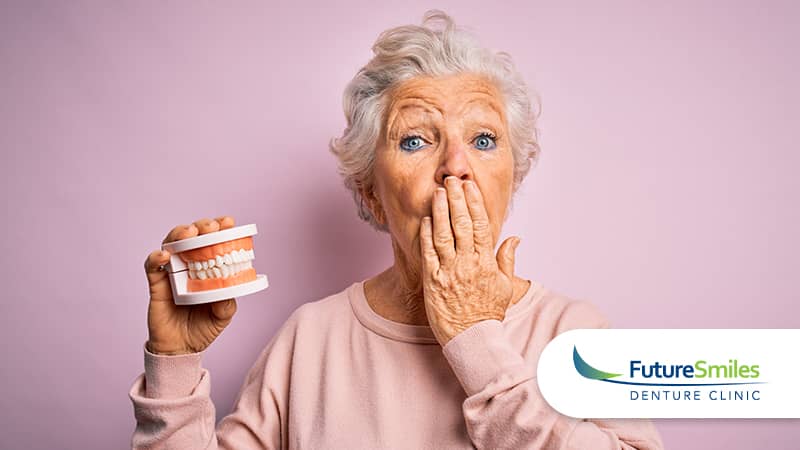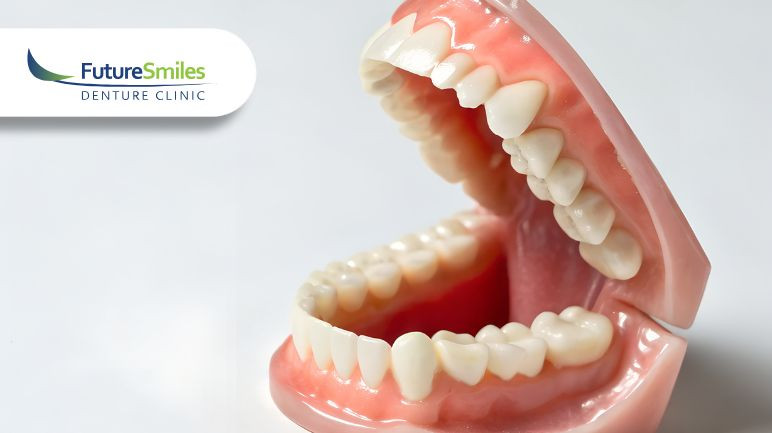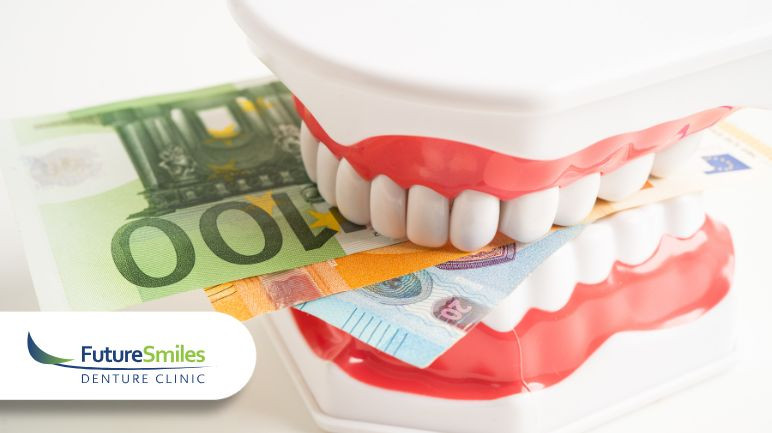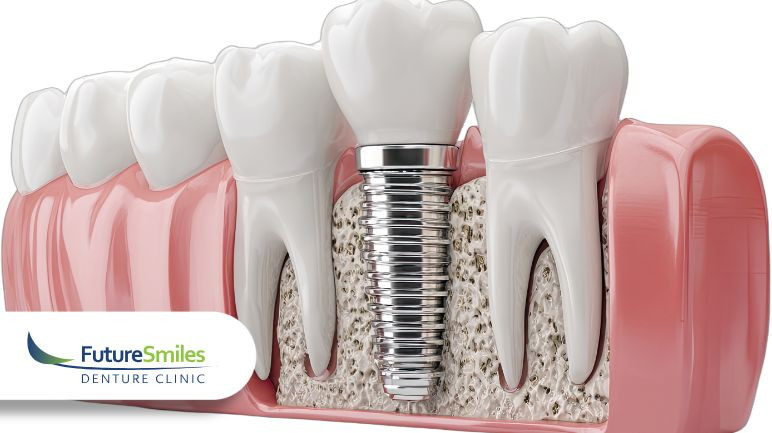Dry Mouth 101
How Dry Mouth Can Affect Your Denture Experience
Saliva plays an important role in the function of dentures. The saliva saturates food particles to aid in swallowing and the layer of saliva between the gums and the denture helps the dentures to retain their suction and stay in place. Saliva also has a lubricating effect that prevents the dentures from rubbing on the gums and creating sores. When your body is not producing enough saliva, your denture will likely not stay in place and may cause pain or discomfort, making it difficult to chew and speak. Dry mouth can also increase your risk of oral infections since bacteria is not being washed away, making those with dry mouth more susceptible to gum disease that causes tenderness of the gums and discomfort or pain while wearing dentures.
Symptoms Of Dry Mouth
You may be suffering from dry mouth if you always or frequently have:
- Dryness in the mouth
- A feeling of stickiness in your mouth
- Thick and stringy saliva
- Bad breath
- Difficulty chewing, speaking, and swallowing
- Dry or sore throat
- A hoarse voice
- Dry or grooved tongue
- An altered sense of taste
- Problems wearing dentures
What Increase The Risk Of Dry Mouth?
- Medications. This condition is a very common side effect of many medications including those used to treat high blood pressure, anxiety, and depression, as well as muscle relaxants, sedatives, antihistamines, and more.
- Cancer Treatments. Certain forms of cancer treatment can affect the salivary glands and trigger dry mouth. Chemotherapy in particular can cause thick saliva that loses its lubricating effect.
- Age. There can be several age-related factors that affect saliva production, such as the need for increased and varied medication, changes in the body’s ability to process this medication, changing nutritional needs, and long-term health problems.
- Nerve Damage. Injury or surgery in the head or neck area that causes nerve damage can result in chronic dry mouth.
- Mouth Breathing And Snoring. Breathing through your mouth can cause evaporation of the saliva. While this is not likely a cause for dry mouth if you only breathe through your mouth at night but it can exacerbate symptoms. Those who consistently breathe through their mouth during the day may experience evaporation of saliva.
- Tobacco And Alcohol Use. Both of these substances will increase dry mouth symptoms and prolonged use can contribute to health issues that can cause dry mouth.
Get Your Smile Back With Future Smiles Denture Clinic
If you have dry mouth symptoms that affect the fit of your dentures, see a professional denturist to discuss your options. It may be possible to rebase or adjust your dentures for a more comfortable fit and your Calgary denturist can give suggestions to help relieve your discomfort. Whether you have partial or complete dentures, the Calgary denturist at Future Smiles Denture Clinic can adjust your dentures to facilitate comfort. To speak with the team at Future Smiles Denture Clinic in Calgary, you can visit the SW Calgary Denture clinic on Macleod or the NE Calgary location in Coral Springs. To book a free consultation with our Calgary Denturist, call 1-403-475-0016 or fill out the online contact form.
FAQ
Q: Do dentures cause dry mouth?
A: No, dentures do not cause dry mouth. Because the effects of dry mouth can cause dentures to become uncomfortable, dry mouth becomes more noticeable for denture wearers. Most people don’t notice their dry mouth until their saliva production is reduced by at least half.
Q: I’m looking for affordable denture solutions. What options do I have?
A: At Future Smiles Dentures Clinic, we know that Calgarians are looking for low-cost, stress-free denture payment plans. This is why we offer affordable denture solutions, including direct billing and financing.
Q: Does dry mouth affect those who wear partial dentures or only those who wear complete dentures?
A: Dry mouth will more severely affect those who wear complete dentures, as they rely more heavily on suction to stay in place. Partial dentures can also have a compromised fit when there is not enough saliva, but these dentures use the natural teeth to stay anchored in place and will therefore move around less when suction is lacking.







